Animal kinesiology: Experience report by participant Sonja Kauz - the training has made me personally more open, more stress-resistant and more sensitive
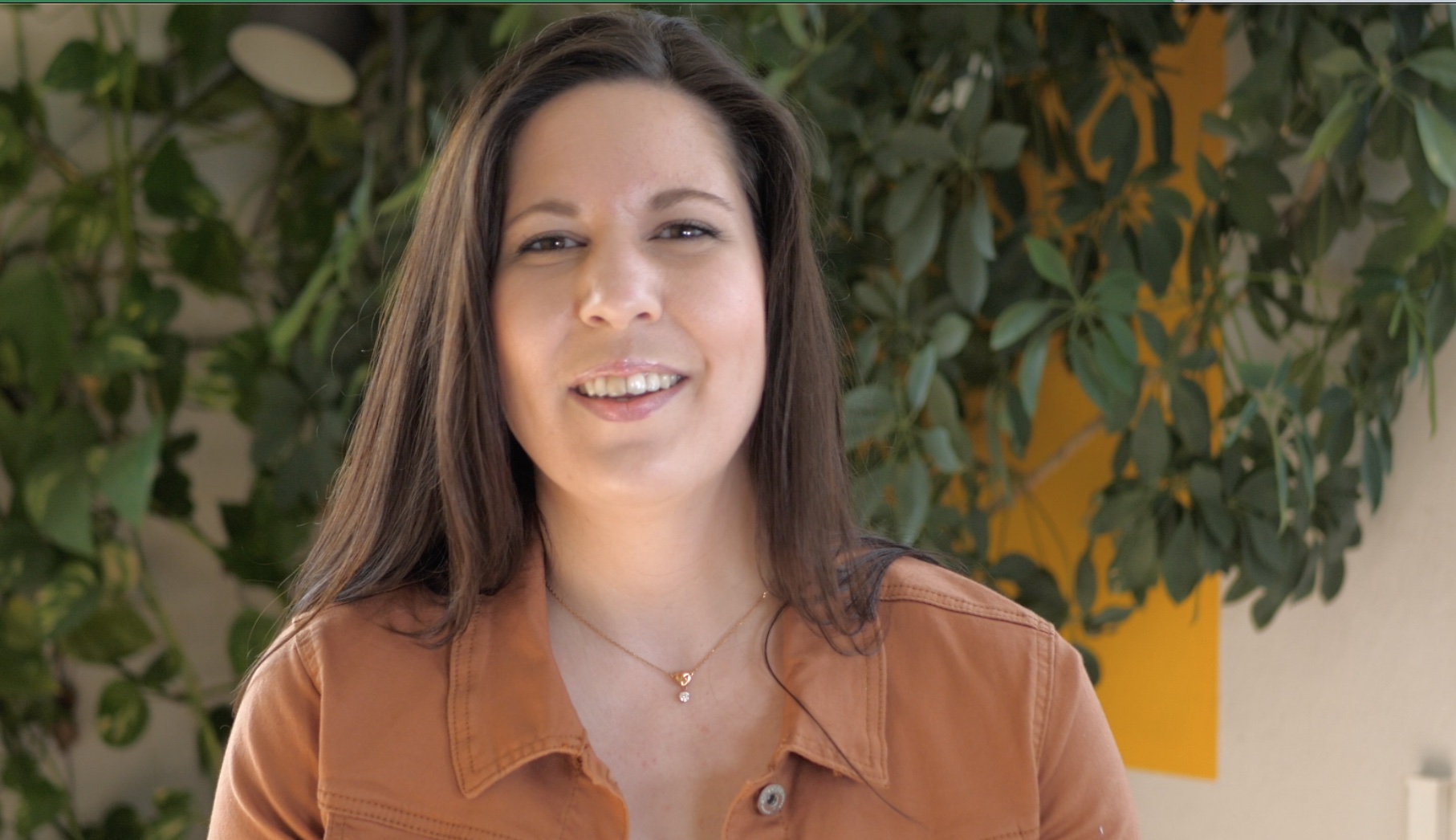
Please introduce yourself briefly and tell us something about your professional background.
My name is Sonja Kauz. I am 33 years old and have been working in this role in a pharmacy since my apprenticeship as a pharmaceutical assistant. After my burnout a good 10 years ago, I came across animal kinesiology training and continued my education to become an animal kinesiologist. In order to make this change, I had intensively examined my life goals, professional development opportunities and prospects. When choosing my continuing education, further training, it was very important to me to be able to work independently and combine family and career.
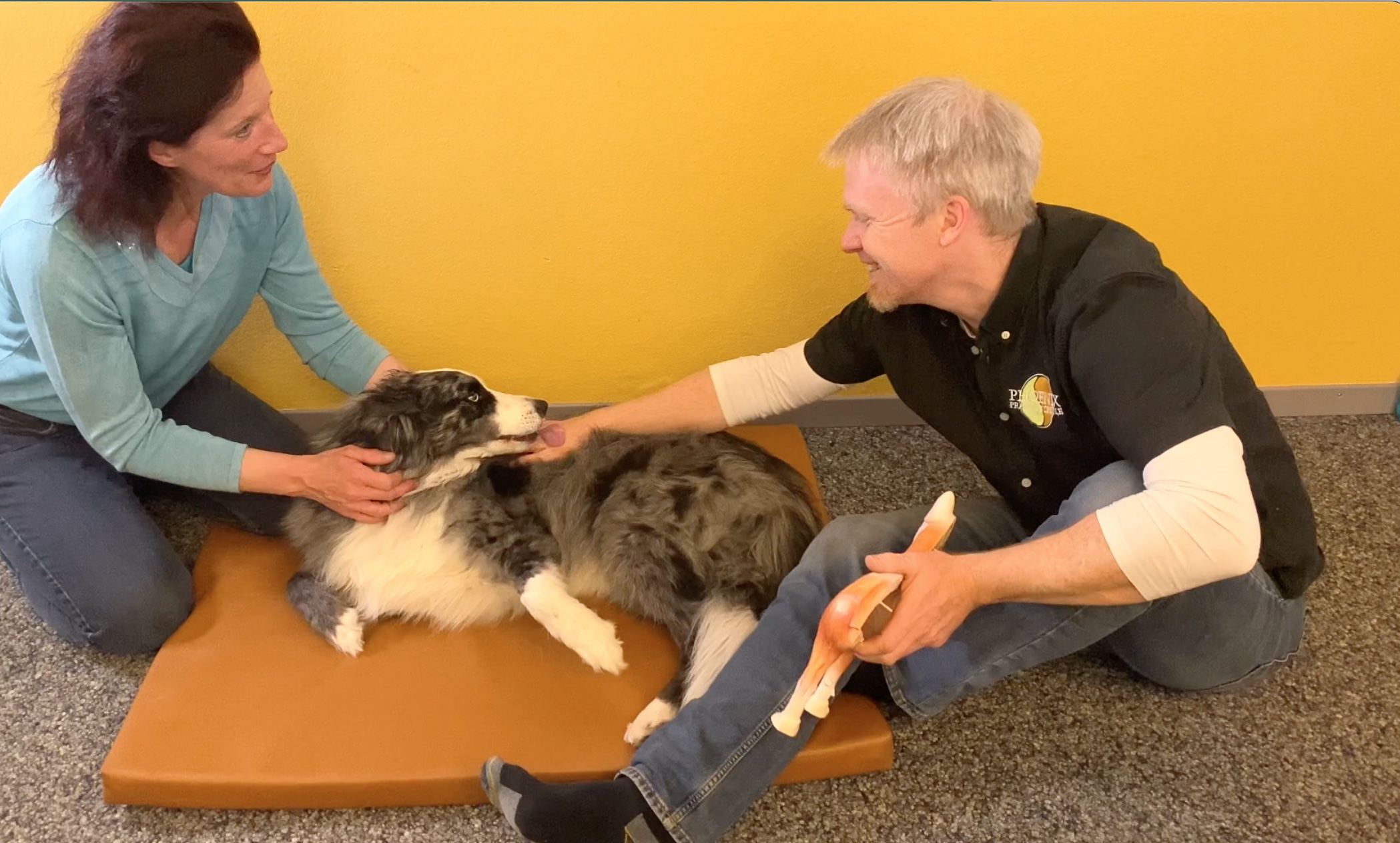
What courses are you taking at the PHOENIX School?
At the PHOENIX School, I first completed a two-year training course to become a certified animal kinesiologist NGL. The NGL concept stands for holistic and complete diagnostic and therapeutic options, which offer veterinarians the optimal practical connection to their conventional medical basis (NGL=Naturally Healthy Living). After graduating in animal kinesiology, my work as an animal kinesiologist made me realize that the problems of animals are often related to the problems of their owners. My interest in being able to help people even better grew. This resulted in additional continuing education, further training as a life coach, which I attended at the PHOENIX School.
Why animal kinesiologist?
I found animal kinesiology very exciting and I love having animals myself. I enjoy interacting with animals. I can apply this as an animal kinesiologist. I found a different approach to animals during my animal kinesiology training. I've always loved horses, dogs and cats. I've always been involved with animals, even though I've unfortunately never had any myself. Even when I was riding - one of my biggest hobbies - I realized that animal communication opens up many new possibilities. As a result, my relationship with the animals I often have to deal with became much more intimate. I found this development very exciting.
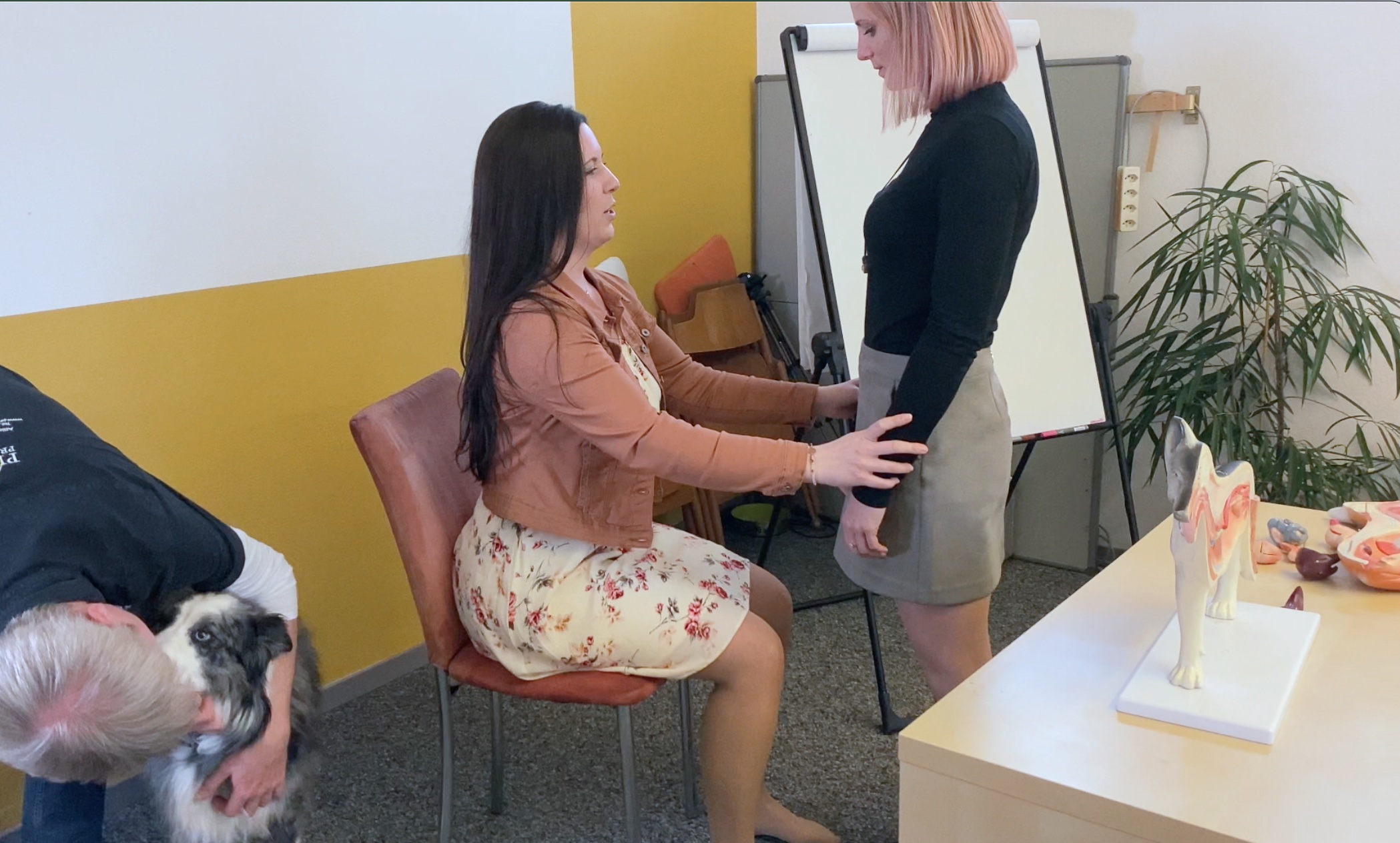
Why are you doing the animal kinesiology training at the PHOENIX School?
I came to the PHOENIX School for my animal kinesiology training more or less by chance. I was initially interested in another school. However, a pharmacy customer of mine, who started her training at the school, then brought me to the PHOENIX school. As a result, I took a closer look at the school and got to know it better during a personal tour. After that, I was sure that the animal kinesiologist continuing education, further training was right for me and that I wanted to attend it. Even without a direct conversation with the principal, I was convinced by the school. I am a very sensitive person by nature who relies heavily on my own intuition. I felt very comfortable straight away. The principal was also very sympathetic during the interview and we had a good conversation. It was also important for him to get to know the participants in advance. Michael Sorsche was able to get involved with me straight away and accepted me with all my personal problems. That gave me a sense of security. So I let my feelings guide me and immediately filled out the application to learn animal kinesiology, which was the best thing I could have done at the time.
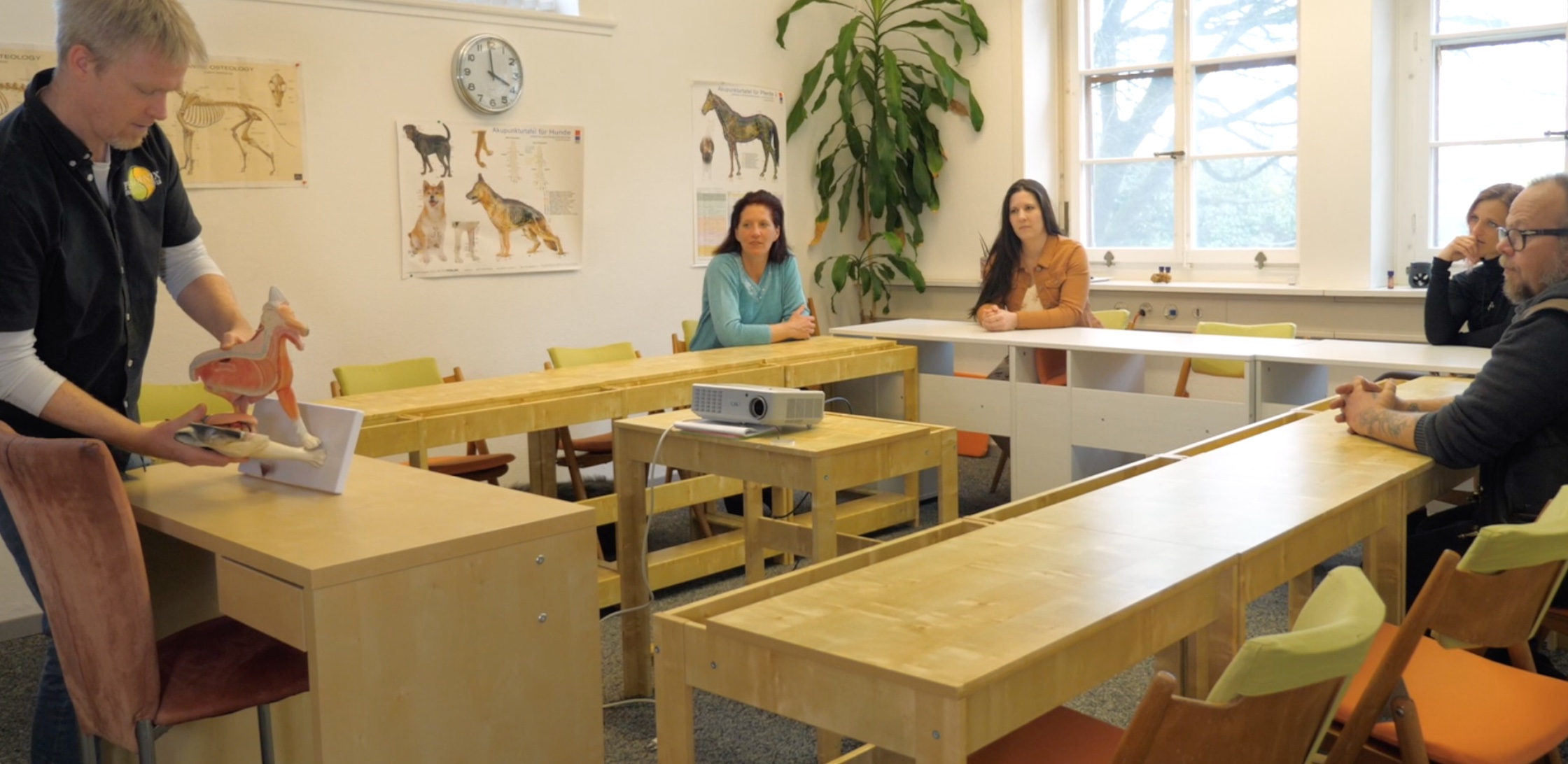
What have you personally gained from training as an animal kinesiologist?
Training to become an animal kinesiologist has brought me a lot personally. I have learned a lot about myself. I can now absorb stressful situations better. I can now also better distance myself from things that are simply not good for me at that moment. I also learned to deal better with stress at work as a pharmaceutical assistant. I can also implement better sensitivity, which means paying more attention to details in terms of body language and expression.
What did you like best about PHOENIX School?
They were able to get involved with me, treat me well as a person and encourage me. This allowed me to develop my potential. That's a big plus point at PHOENIX School. You never have the feeling of being out of place here. Even if you have a less good day or weaknesses in a subject, you learn to deal with them in a targeted way and communicate them. You can explain why you feel that way and what you are missing. You can then get these things specifically. It's not a case of working through animal kinesiology information or scripts, but rather an individual approach to each student. This allows everyone to follow and participate at their own pace. Everyone can develop their own style as an animal kinesiologist and later put it into practice.
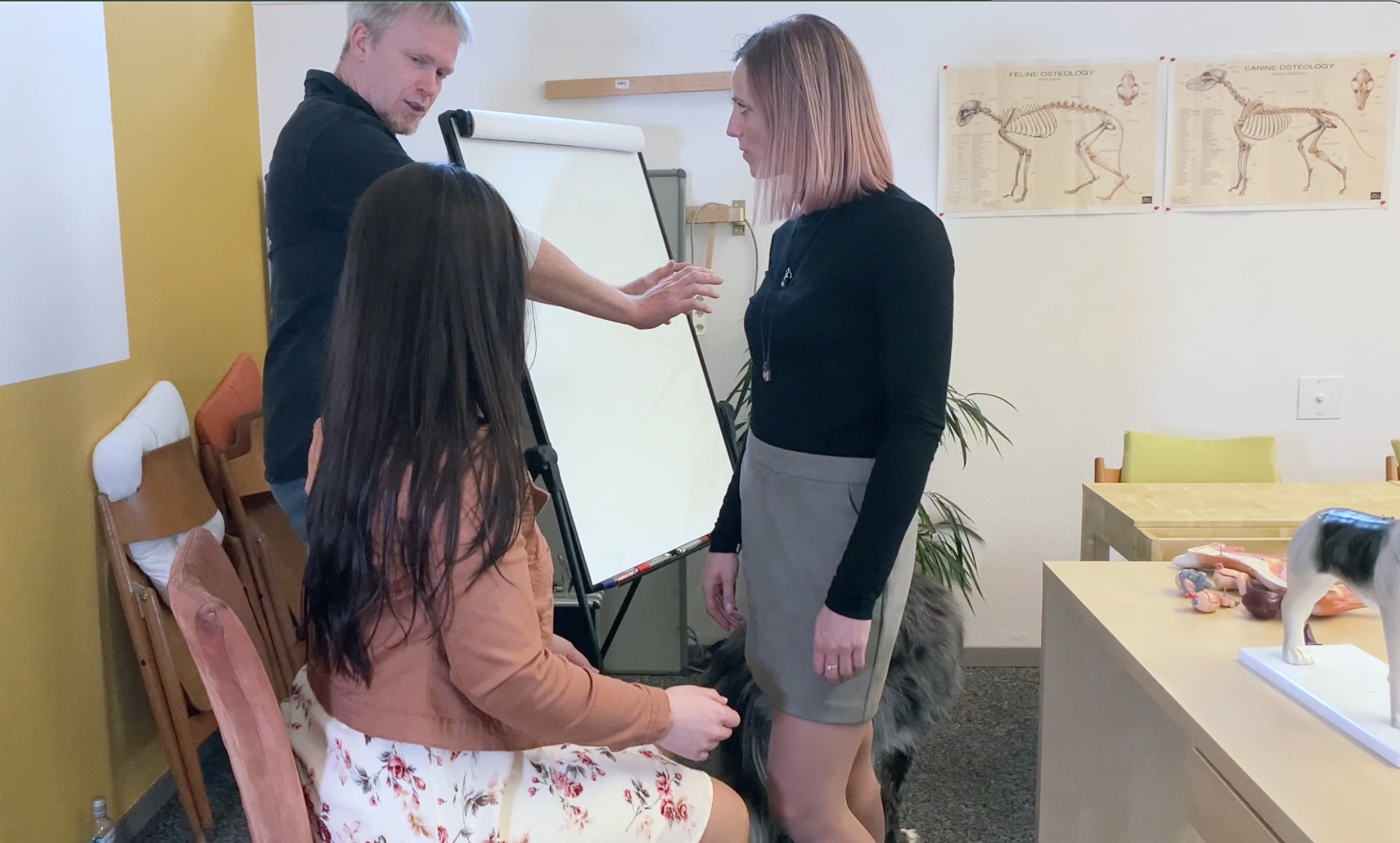
Did you have an "aha" experience during the animal kinesiology training?
All the information I received from TEN (Traditional European Naturopathy), all the elements and their interplay helped me to piece together a puzzle during my animal kinesiology training. As a result, I can see the choice of therapy for clients in more detail and can offer people and their animals more targeted help. Today, in conversations as an animal kinesiologist, I quickly realize whether this is really the cause of a problem. By asking specific questions, I can now uncover stress factors and emotions that clients might not have wanted to show or hide from me. I find it fascinating how, by asking people various questions that make them think, they come across a problem that they were previously unaware of. This allows clients to grow and solve the problem themselves. They become aware of what needs to be changed in order to get out of this situation.
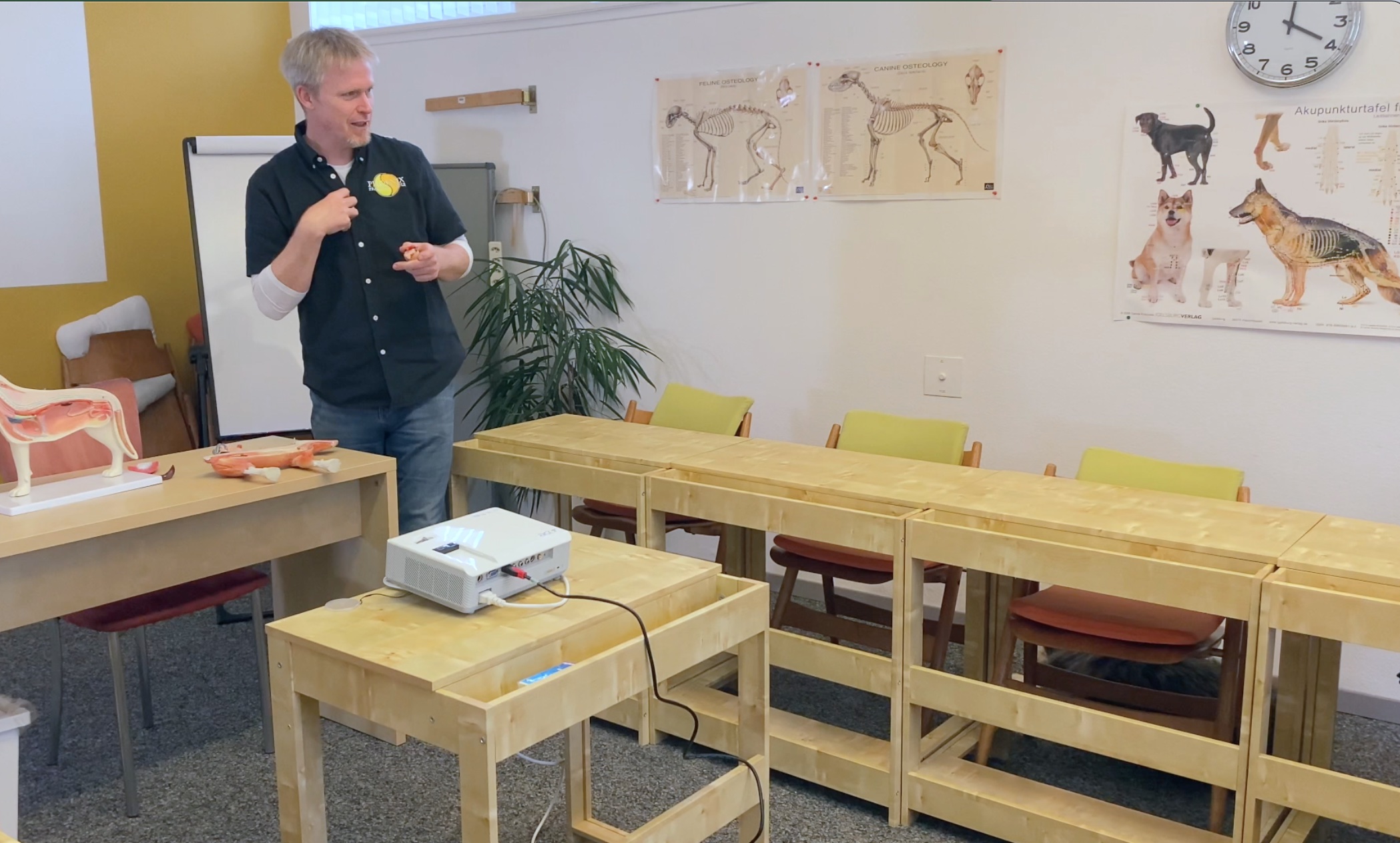
Has animal kinesiology training improved your life or daily routine?
The animal kinesiology training has changed my professional life in that I have become more open towards other people. I was able to strengthen my personality and my competence. I can now rely on what I have learned and on my instincts. And I can now clearly distance myself better from difficult things. Things used to stress me out personally that weren't really an issue. When I'm tense, I notice it and can ask myself exactly what the problem is and whether it really is my problem. What is stressing me out and why. As a result, many things have disappeared into thin air. This gave me personally more freedom. I was able to develop and strengthen myself in a different way. That really helped me.
Are you now working as an animal kinesiologist?
After training as an animal kinesiologist, I set up a mobile animal kinesiology practice. It is important to me that people come to me who belong to me. So I don't advertise it very much. I can offer my services to customers in the pharmacy and hand out business cards. I keep this activity as an animal kinesiologist purely for my own enjoyment, it doesn't have to finance my life. I love doing this and I love helping animals. As well as people in their relationship with their animals. Being able to offer this help is worth a lot to me. For me, the personal reasons are clearly in the foreground.
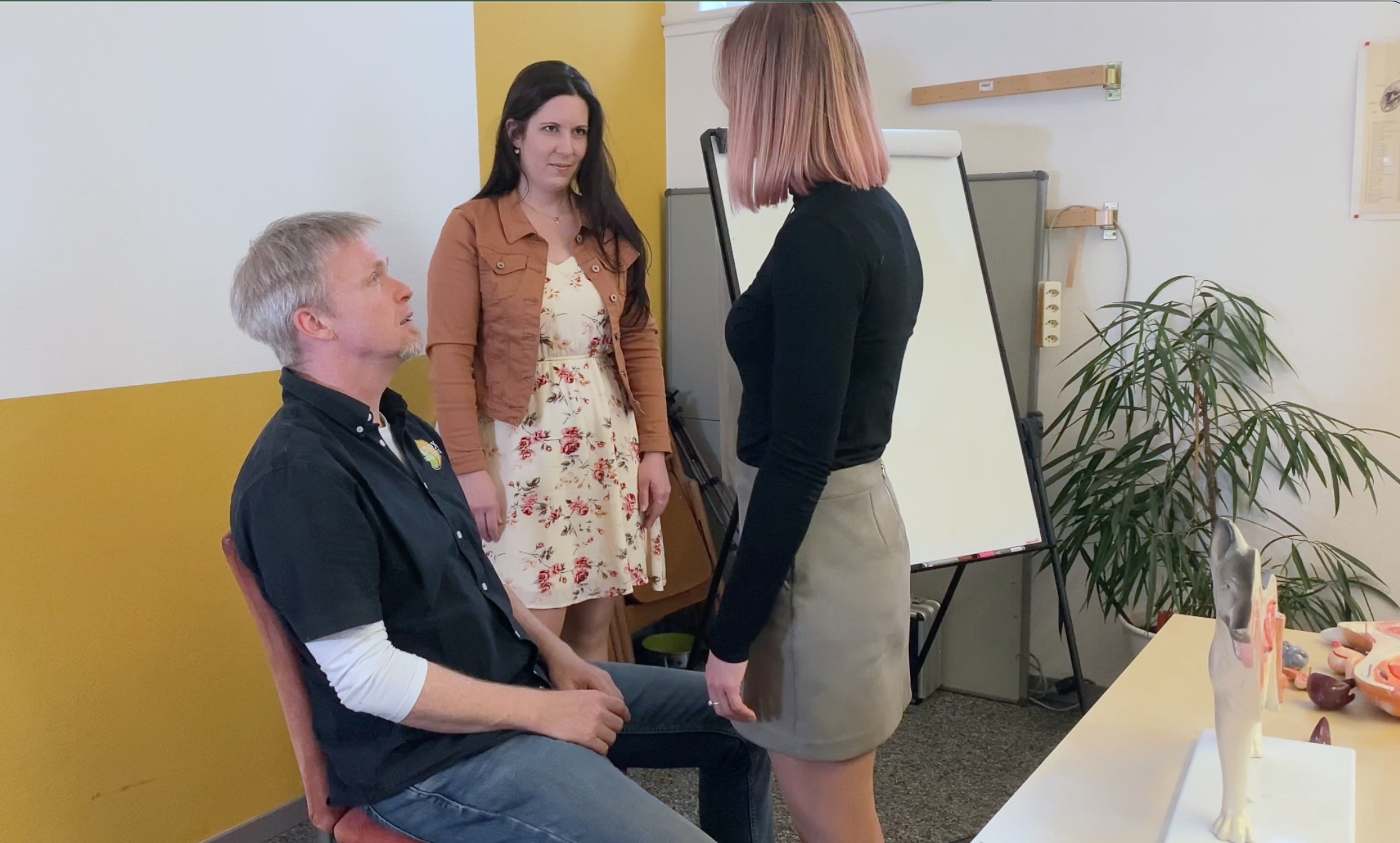
Are there also challenges in the animal kinesiology course?
Yes, there are difficult moments on the animal kinesiology course - especially as it also involves a lot of personality training. Sensitivity and healing senses are trained. There are exercises that are very close to you personally. This is usually caused by your own blockages. For example, I need a lot of emotional distance because I don't like to show my weaknesses. Today, after the animal kinesiology course, I can deal with my weaknesses in a more positive way. By accepting these weaknesses, you can also change them for the better. You get help from the course instructor but also from the other participants. You learn more about all your weaknesses and find help and a common way of dealing with them. I learned to reveal myself. In this course, the focus is not only on the animals but also on the people who work with them. There are no prejudices and you learn from them. This is how you grow as an animal kinesiologist and learn to better recognize the weaknesses of future clients. I learned to deal better with negative stress and to feel others better. I now know when I've had enough and can communicate this clearly to others.
Where would you be today without your training as an animal kinesiologist?
I would probably still be in my old rut. I still wouldn't have learned how to deal with my stress factors properly. My psychic disposition was also a stress factor. I had a few contacts as a result and didn't know how to deal with them. I wanted to find out whether there really was something behind it so that I could deal with it better. If I hadn't started training as an animal kinesiologist, I would probably have stopped it altogether. I would also be living a run-of-the-mill life - get up, go to work, go home and go back to sleep... I wouldn't have the satisfaction I have today. Or the freedom I have today. This is how I would imagine life without animal kinesiology.
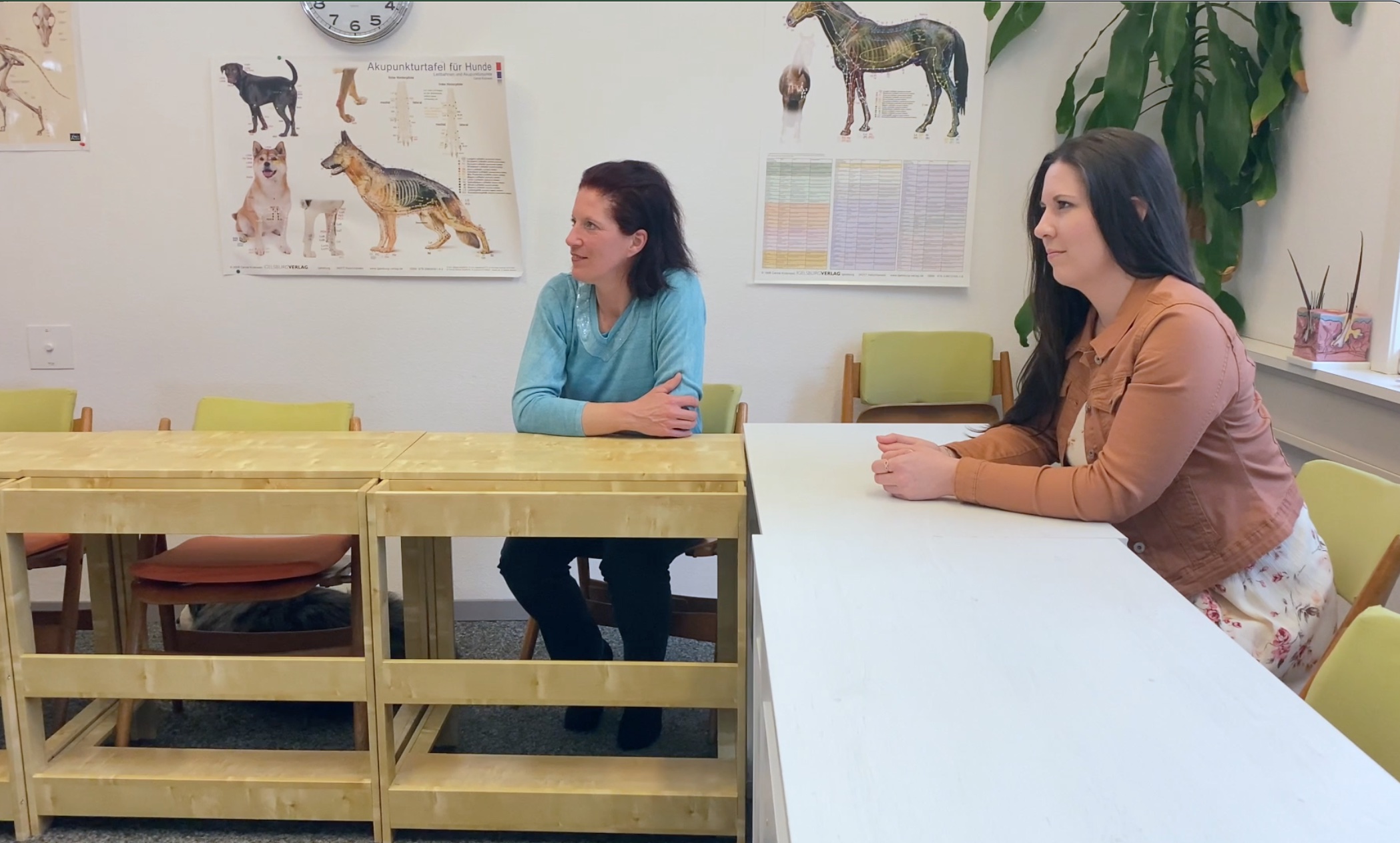
What did you particularly like about PHOENIX School?
What I particularly liked about the PHOENIX school was that each person is treated individually. Each individual with their own personality and problems is accepted and addressed. Animal kinesiology training is not just about teaching content, as is the case at many other schools. I also realized this in conversations with animal kinesiologists from other schools. Here you are in a direct context as a person. The PHOENIX school focuses very strongly on the emotions, not only of the participants, but also of the animals that are later treated. Later, as an animal kinesiologist, you not only work with acupressure or phytotherapy, but also specifically with animal communication or emotional stress release (ESA) to release stress. From my point of view as an animal kinesiologist, this is much more effective than working only through the body. This is really only taught at the PHOENIX school.
